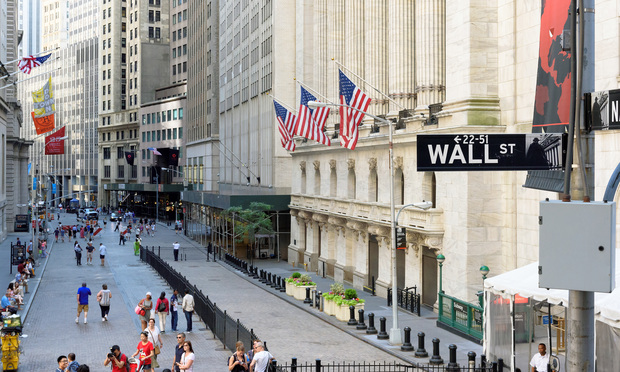
Wall Street benchmarks closed sharply down on Wednesday, after Federal Reserve System Chairman Jerome Powell warned of a extended recession if Congress didn’t step in with additional fiscal stimulus.
The Dow Jones Industrial Average ended the day lower by just over 515 points, with the S&P 500 down by 1.7 percent. The Nasdaq — which earlier in the week had turned positive for the year, breaching the 9,000 mark — closed down by 1.5 percent on Wednesday.
“There may be a growing sense that the economy may recover more slowly than we might like,” Powell said Wednesday morning during a scheduled video conference with the Peterson Institute for International Economics.
While the Fed has slashed rates to close zero and implemented a series of crisis relief measures that support lending and liquidity, Powell said the central bank’s “timely and appropriately large” economic response “may not be the ultimate chapter.”
Powell continues to reject involves negative rates, saying “I know there are fans of the policy, except for now it’s not something that we’re considering.”
Even before the coronavirus pandemic, President Donald Trump and a few policy experts encouraged the Fed to think about negative interest rates to spice up the economy.
Trump doubled down thereon sentiment, telling reporters Wednesday within the White House he “feels strongly we should always have negative rates.”
Overall, concern is growing that despite the gradual reopening of the economy and return to figure , the proverbial “V-shaped” recovery might not materialize — and therefore the country may instead suffer a protracted recession.
The U.S. economy lost an unprecedented 20.5 million jobs in April, and therefore the percentage has soared to 14.7 percent, up from 4.4 percent in March after months at a half-century low.
“This reversal of economic fortune has caused A level of pain that’s hard to capture in words, as lives are upended amid great uncertainty about the longer term ,” Powell said, describing the scope and speed of the economic downturn as “significantly worse than any recession since war II.”
Market participants also weighed concerns that the recently inked — and hard-fought — trade affect China may flounder amid heightened tensions between the world’s two largest economies. Rhetoric has ratcheted up within the past week, with the White House’s top trade adviser, Peter Navarro, saying Beijing should be held in charge of spreading the coronavirus.
“They inflicted tremendous damage on the planet , which remains ongoing,” Navarro told CNBC on Monday. “We’re up to shut to $10 trillion we’ve had to appropriate to fight this battle.”
President Donald Trump tweeted on Wednesday that “100 trade deals” wouldn’t outweigh the damage caused by the “Plague from China.”
As I have said for a long time, dealing with China is a very expensive thing to do. We just made a great Trade Deal, the ink was barely dry, and the World was hit by the Plague from China. 100 Trade Deals wouldn’t make up the difference – and all those innocent lives lost!
— Donald J. Trump (@realDonaldTrump) May 13, 2020
Investors were also parsing disappointing monthly data from the Department of Labor that showed prices for U.S.-produced goods fell in April by the most important amount since 2015. The producer price level fell by 1.3 percent, far worse than economist expectations of 0.5 percent.











